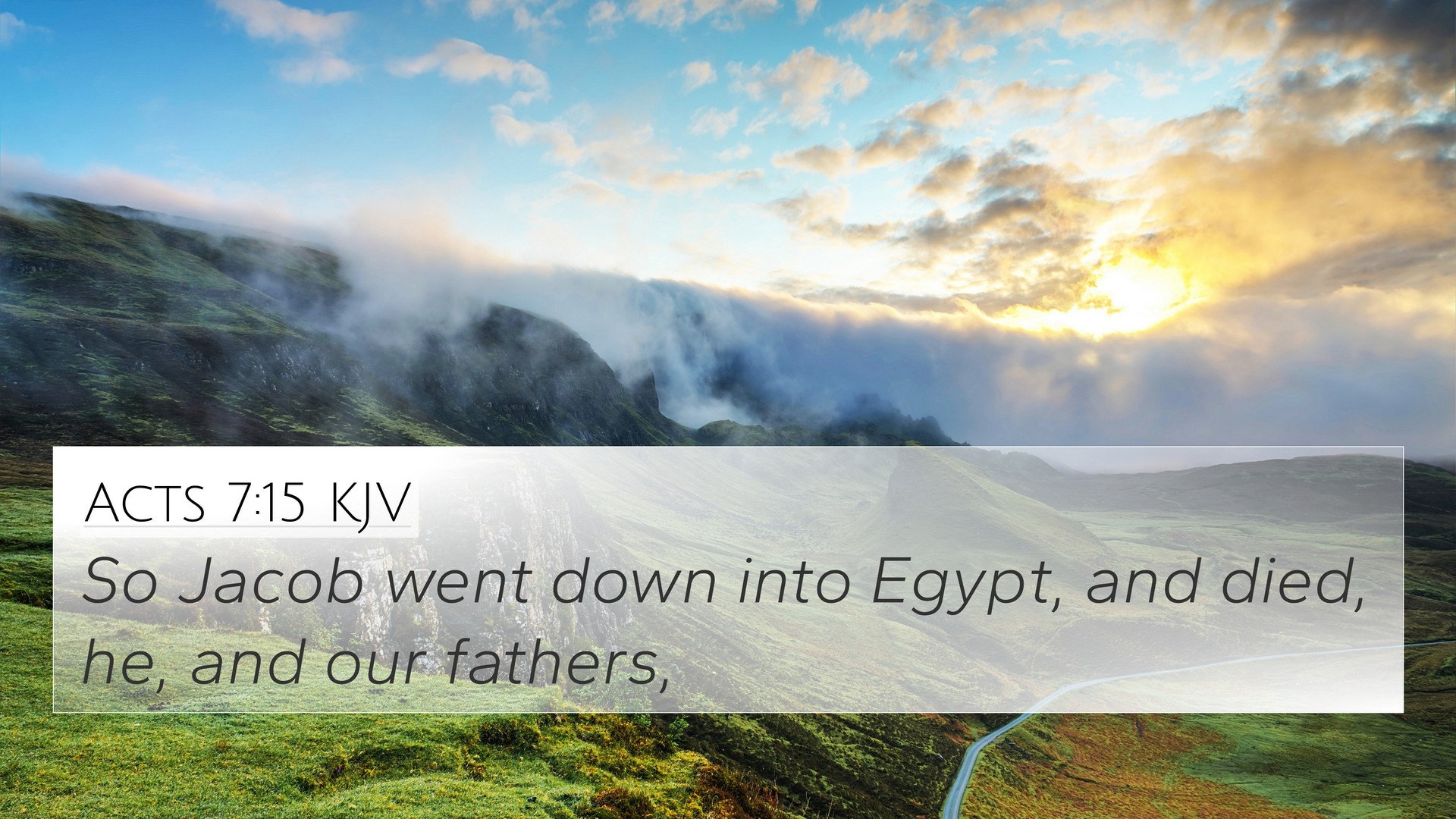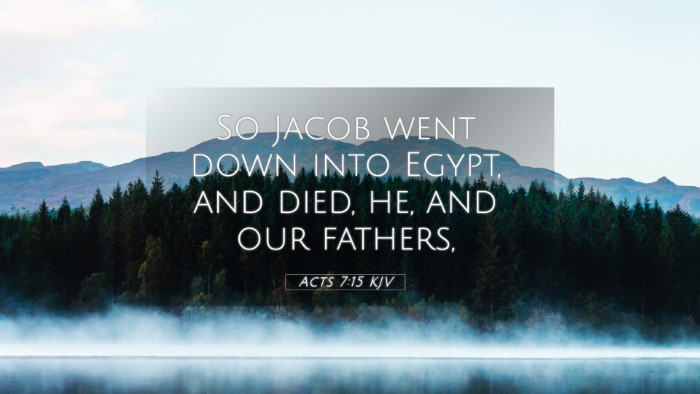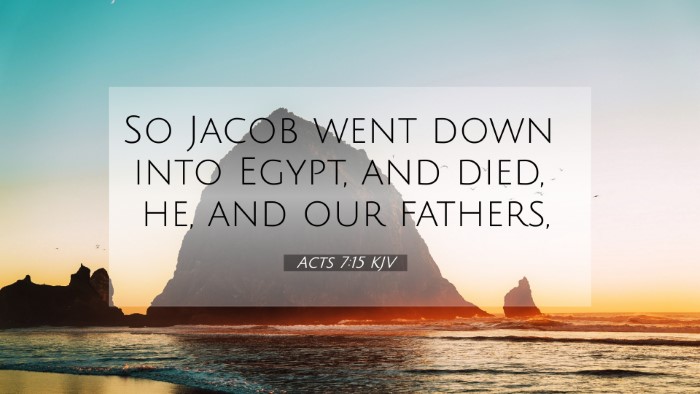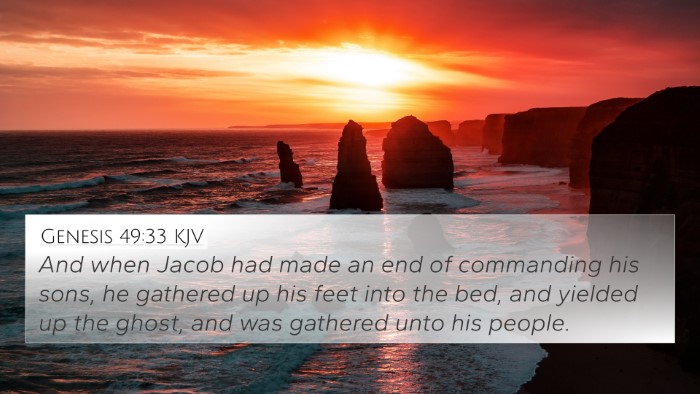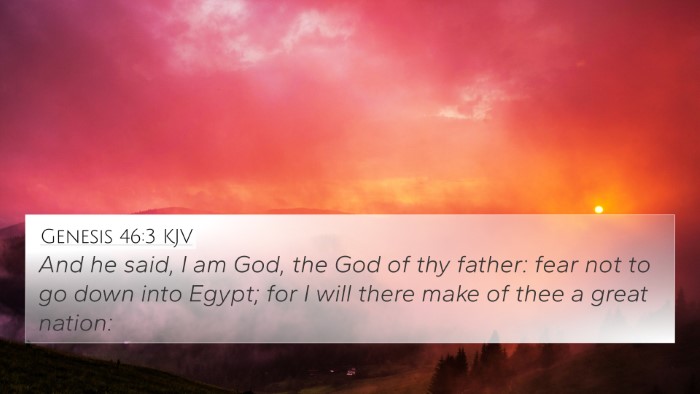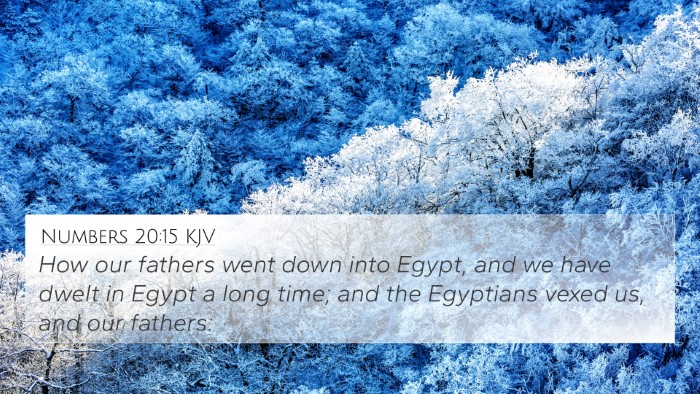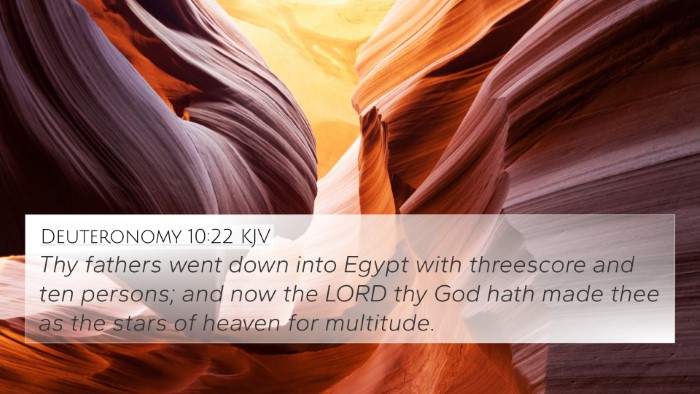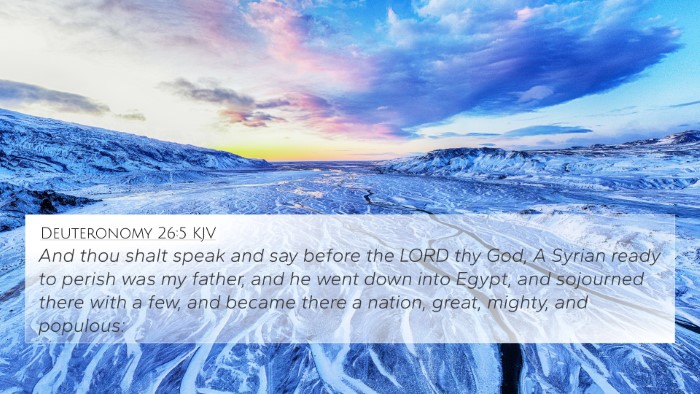Understanding Acts 7:15
Verse Context: Acts 7:15 states, "So Jacob went down to Egypt; and died, he, and our fathers." This verse highlights a pivotal moment in the biblical narrative where Jacob and his family enter Egypt, setting the stage for future events in the history of Israel.
Meaning and Interpretation:
Acts 7:15 is part of Stephen's address to the Sanhedrin, where he recounts the history of Israel. This verse serves to illustrate the faithfulness of God in preserving the lineage of Jacob, despite their circumstances. The journey to Egypt, though initiated out of necessity due to famine, eventually leads to the Israelites’ slavery—a significant thematic development in the Bible.
Commentary Insights:
- Matthew Henry: Henry emphasizes the sovereignty of God in the historical timeline of Israel. He notes that God's providence brought Jacob to Egypt where he would be able to reunite with his son Joseph, demonstrating that God's plans often work through dire situations.
- Albert Barnes: Barnes points out that the mention of Jacob going down to Egypt reflects both the transition from Canaan to Egypt and the foreshadowing of the Israelites’ eventual bondage. His commentary suggests that while the journey appears to be a physical relocation, it symbolizes a significant change in God's covenant people.
- Adam Clarke: Clarke elaborates on the genealogy and the importance of Israel's family structure. He interprets this movement as an essential step in fulfilling God's promise to Abraham, asserting that God's plan for the lineage was always meant to extend beyond immediate physical boundaries.
Cross-Referencing Acts 7:15:
To understand Acts 7:15 more deeply, we can look at several Bible verses that connect with its themes and historical context:
- Genesis 46:1-7: This passage recounts Jacob's journey to Egypt, providing insight into the reasons and significance of this migration.
- Genesis 37:34-36: Details the events leading to Joseph's rise in Egypt and Jacob's initial sorrow, which are pivotal to understanding this transition.
- Exodus 1:8-14: This scripture describes the Israelites' eventual oppression in Egypt, an important follow-up to their entry as depicted in Acts 7:15.
- Romans 8:28: Reflects on God's providence, suggesting a broader theological insight into how God uses all circumstances, including the journey to Egypt.
- Hebrews 11:21: Speaks about Jacob's faith at the end of his life, linking his story to the overarching biblical narrative of faithfulness amid trials.
- Genesis 50:24-26: Highlights Joseph's prophecy regarding the exodus from Egypt, tying back to the consequences of Jacob’s move.
- Acts 7:9-10: Prior verses in Acts where Stephen speaks about how God was with Joseph in Egypt, illustrating continuity in God's plan.
Thematic Connections:
Acts 7:15 serves as a crucial point in the broader story of Israel, encapsulating themes of:
- Faith and Providence: The belief that God orchestrates events for the fulfillment of His promises.
- Justifiable Migration: The reasons behind Jacob's move to Egypt as a method of survival and divine plan.
- Transformation and Trials: The transition from hope to eventual hardship, pivotal to understanding Israel’s narrative.
Using Cross-References Effectively:
To study Acts 7:15 in a comprehensive manner, consider employing these tools for Bible cross-referencing:
- Utilize a Bible concordance to find keywords related to your interests.
- Explore a cross-reference Bible study to create thematic links across scriptures.
- Implement strategies from cross-reference Bible study methods for deeper understanding.
Conclusion: Acts 7:15 is more than a mere historical note; it presents a powerful lesson on God's faithfulness and the profound connections within biblical texts. By engaging with cross-referencing methods and related scriptures, readers can uncover deeper truths and insights that resonate throughout the entirety of the Bible.
